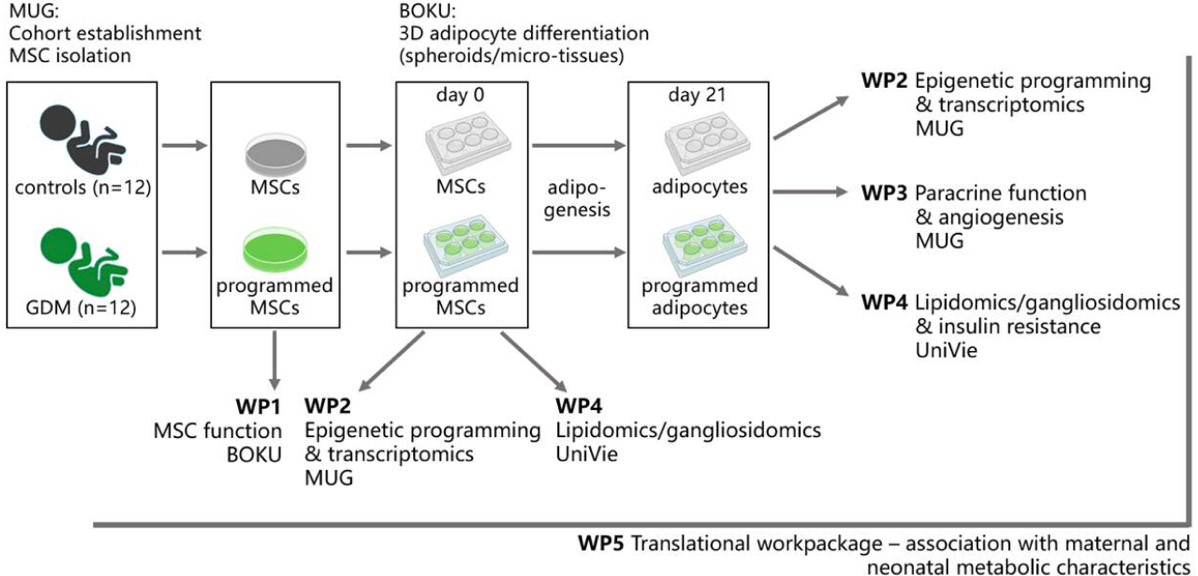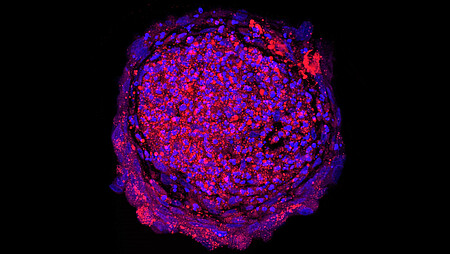
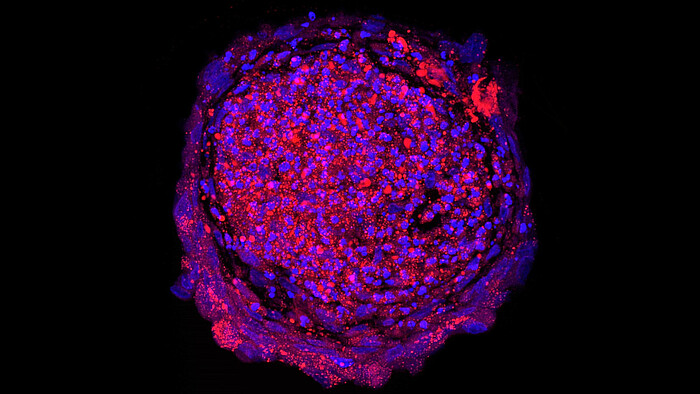
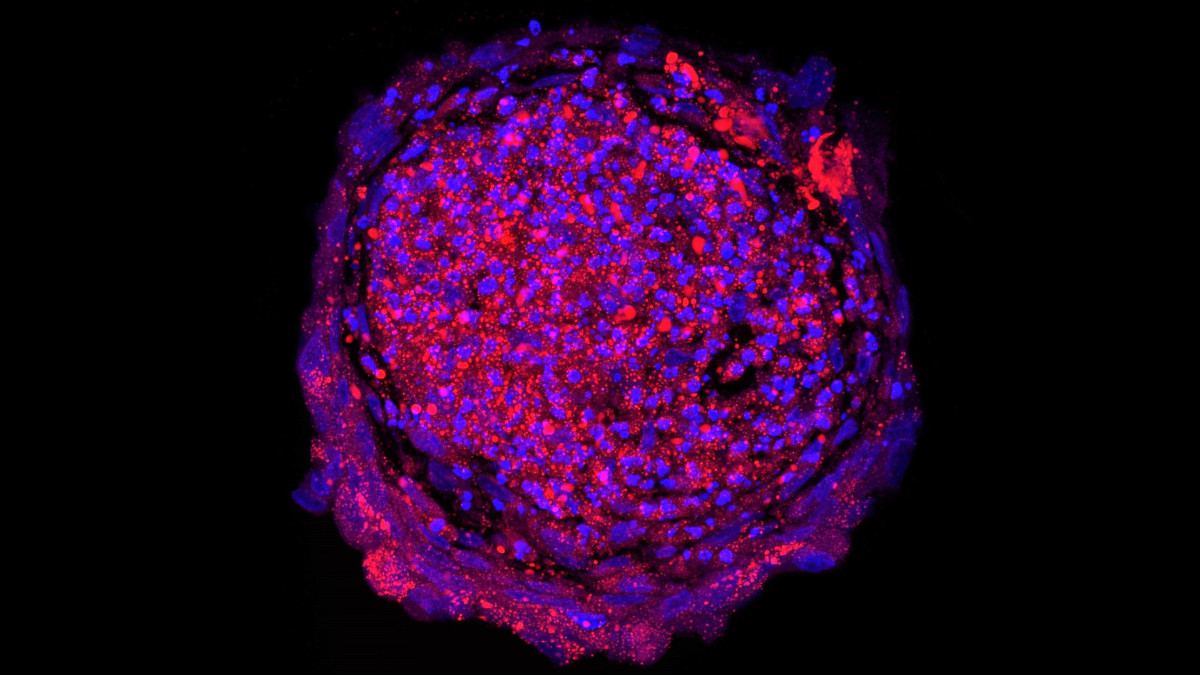
Our goal is to develop innovative cell culture technologies for the production of relevant cell culture models for drug testing and the development of new cell-based therapies.
Our goal is to develop innovative cell culture technologies for the production of relevant cell culture models for drug testing and the development of new cell-based therapies.
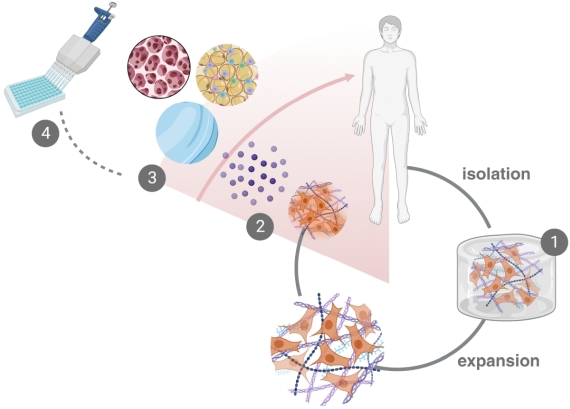

 ©
Created with BioRender.com
©
Created with BioRender.com
Our goal is to develop innovative cell culture technologies for the production of relevant cell culture models for drug testing and the development of new cell-based therapies.
To achieve this, cells should be cultured in the most natural, body-like environment possible at each point in the culture – from isolation (1) to proliferation, to production of stem cells and stem cell products (2), final differentiation (3) or subsequent drug testing (4). To ensure physiological conditions during culture, we develop and use 3D cell culture technologies and bioreactor systems, which are operated in a hypoxic (oxygen-reduced) environment. Under such physiological culture conditions, cells behave more like they do in the human body – making research results more meaningful and clinically relevant.
Prone Adiposity
Programming of neonatal adipose tissue by maternal gestational diabetes
The "Prone Adiposity" project is collaborative research project funded by the Austrian Science Fund (FWF). It explores how gestational diabetes (GDM) affects the development of fat tissue in newborns. GDM is a condition where expectant mothers develop insulin resistance during mid-pregnancy due to hormones produced by the placenta. The main risk factors include being overweight, having a family history of diabetes, and being older. Currently, GDM affects 16% of pregnancies in Austria and is becoming more common globally. This condition contributes significantly to the obesity epidemic by affecting how fat tissue develops in the womb.
-
Investigating Metabolic Disease Inheritability
To understand how metabolic diseases like diabetes are passed down through generations, we study mesenchymal stem cells (MSCs) from the umbilical cords of both healthy and GDM-affected pregnancies. We compare these cells in terms of their growth, ability to turn into other cell types, genetic and epigenetic profiles, activity in secreting substances, insulin resistance, and fat composition.
-
Advanced Laboratory Methods
Our experiments are conducted using advanced cell culture techniques to mimic the physiologic in vivo conditions, including 3D cell cultures, low oxygen environments (physioxia), and media free from animal-derived components. These methods help ensure that our laboratory findings are as relevant as possible to real-life conditions.
-
Collaborative Effort
The project involves four universities, each contributing to different aspects of the research:
- Medical University of Graz (Ursula Hiden): Epigenetic reprogramming, transcriptomic analyses, and paracrine function of MSCs and the resulting fat tissues from healthy and GDM donors.
- Leibniz University Hannover (Dominik Egger) in collaboration with University of Natural Resources and Life Sciences, Vienna (Cornelia Kasper): Generation of functional adipose tissue from MSCs of healthy and GDM donors. Functional characterization of the MSCs and the resulting adipose tissue from healthy and GDM donors.
- University of Vienna (Evelyn Rampler): Analysis of lipid and ganglioside compositions and metabolic flux analyses.
Samples are exchanged between these institutions for comprehensive analysis, ensuring a thorough investigation of various factors.
The "Prone Adiposity" project aims to uncover how GDM influences the development of adipose tissue in newborns, contributing to a better understanding of the inter-generational transmission of obesity and metabolic diseases. Through collaborative research and advanced techniques, we hope to reveal new insights into the prevention and management of these conditions.
3D isolation of stem cells
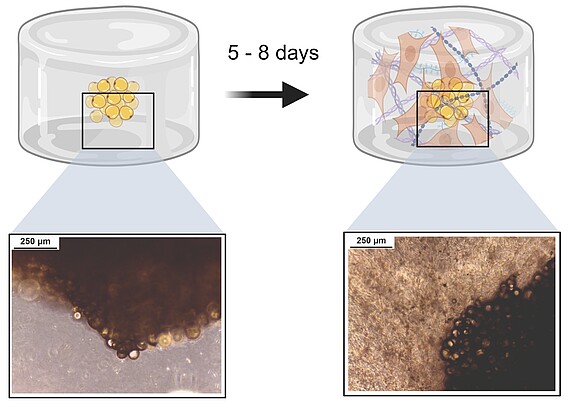
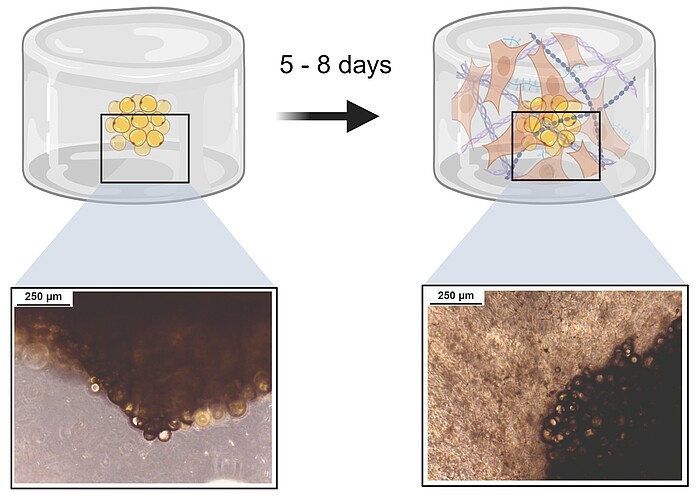
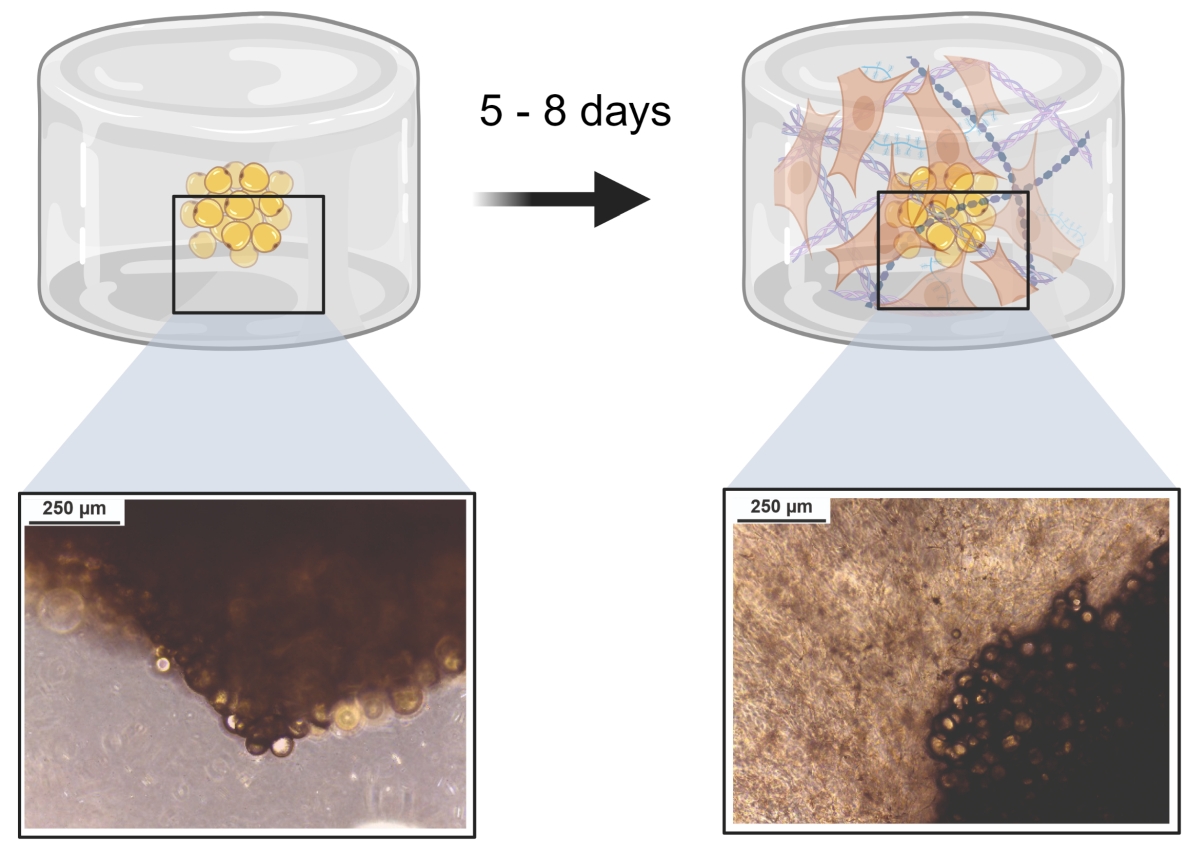 ©
Created with BioRender.com
©
Created with BioRender.com
To obtain progenitor and stem cells from donor tissue, artificial 2D plastic surfaces (T-flask, Petri dish, etc.) are commonly used for culture. However, this is not physiological. We are developing new methods to isolate stem cells from a naturally 3D tissue directly back into a 3D environment - completely without contact to commonly used 2D surfaces. For this purpose, we use different hydrogels and adapt them to the respective donor tissue. We have already established a system that allows the direct isolation of stem cells from adipose tissue in a hydrogel.
Stem cells and stem cell products as active ingredients


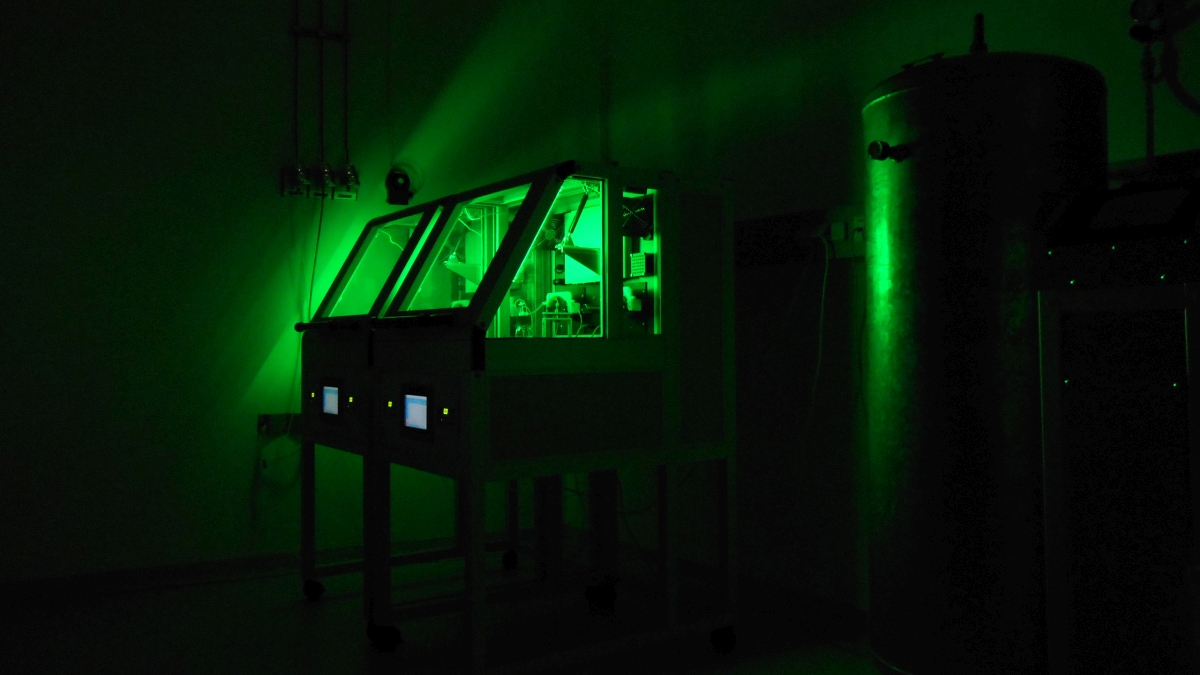
Mesenchymal stem cells have an extraordinary potential for therapeutic applications in the field of regenerative medicine. On the one hand, this heterogeneous population of cells can contribute to the regeneration of damaged tissue, but can also be used for the regulation of the immune system. This is of particular interest in systemic inflammatory states. Also, extracellular vesicles (EVs) secreted by stem cells have therapeutic effects, like stem cells themselves, and are therefore of great interest.
Since it has also been confirmed for the production of stem cells and their products that physiological cell culture conditions can improve the therapeutic potential, we are also developing methods for this field to produce stem cells and stem cell EVs in 3D and under defined physiological conditions in customized bioreactors.
3D cell culture models
To produce physiologically relevant 3D cell culture models, progenitor and stem cells have to be differentiated into different cell types in a 3D environment. For this purpose, either biomaterials can be used as a support structure or 3D structures can be produced from cell aggregates (spheroids). In order to perform targeted differentiation, physical, chemical and biological parameters are adjusted during culture so that they correspond as closely as possible to the natural environment of the target tissue. For this purpose, we use and develop modern and miniaturized bioreactor systems. We adapt the entire culture system in such a way that the end result of the process is a tissue that is as functional as possible.


 ©
Created with BioRender.com
©
Created with BioRender.com
Drug testing
Novel drugs have to be tested in cell culture models before a potential therapeutic effect can be investigated in human clinical trials. We research on human physiological cell culture models that reflect the therapeutically relevant events as well as possible so that the results are meaningful. For this purpose, the cell culture models have to be adapted in such a way that they are suitable for medium or high throughput testing.
Contact
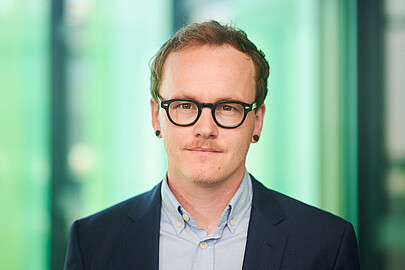
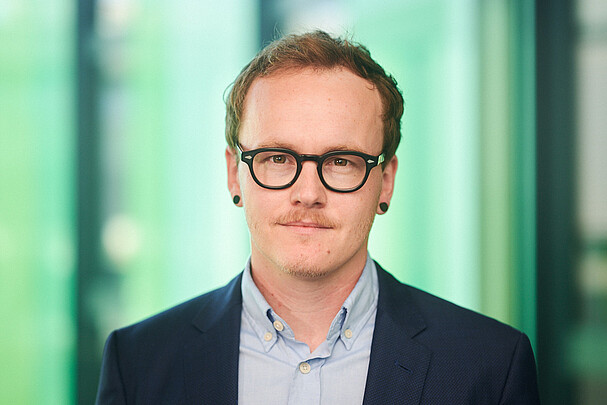
30419 Hannover





